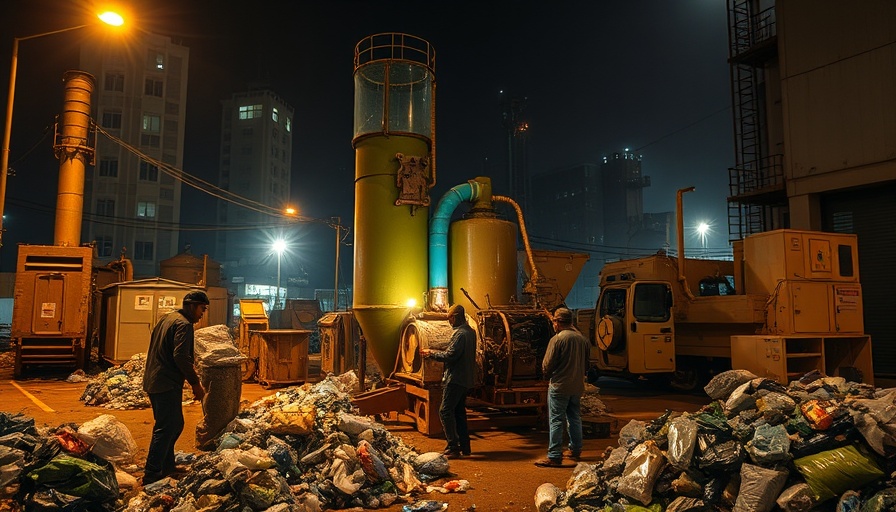
Transforming Waste into Fuel: Petgas Pioneers a Greener Future
In the coastal city of Boca del Río, Mexico, a groundbreaking startup named Petgas is turning heads and addressing the global plastic crisis in a novel way. With the stark reality that less than 10% of the world’s plastics are recycled, Petgas offers a transformative solution. The company utilizes an innovative process known as pyrolysis to convert used plastics into gasoline, diesel, kerosene, and even paraffin. As travelers, digital nomads, and expats navigate the allure of vibrant Mexican culture, they can also be inspired by this forward-thinking initiative tackling environmental challenges.
Understanding Pyrolysis: The Science Behind Petgas
The pyrolysis process employed by Petgas requires heating plastics in a controlled oxygen-free environment, effectively breaking them down into usable fuel. The impressive machinery can process up to 1.5 tons of plastic in just one week, yielding approximately 356 gallons of fuel. This capacity not only addresses local plastic waste but also contributes to a wider repercussion against the growing threat of plastic pollution globally.
Key Takeaway: Environmental Impact and Practicality
While the machine does utilize propane to initiate the heating, Petgas asserts that the end product provides a net positive environmental impact compared to existing fuel options. Their fuels contain lower sulfur levels, ultimately reducing the harmful emissions associated with conventional fuel production. This makes Petgas not just an innovative startup but a potential game-changer in energy production.
Global Context: The Plight of Plastic Waste
The statistics surrounding plastic waste are alarming — global production exceeds 400 million tons annually, a figure projected to surge by 70% by 2040 without impactful policy interventions. Every day, the equivalent of 2,000 garbage trucks worth of plastic enters our waters, aggravating an already serious ecological crisis. Petgas' endeavor contributes to combating these shocking figures while simultaneously benefiting local communities through energy solutions.
A Circular Economy: Rethinking Plastic Waste
Petgas' vision extends beyond just converting waste into fuel; it champions the idea of a circular economy. This approach redefines plastic not as pollution but rather as a resource. The company organizes beach clean-ups, actively collecting discarded plastic and utilizing it as feedstock for their machines. Such initiatives foster community participation, turning environmental responsibility into a collective goal.
Expert Perspectives: An Encouraging but Cautious Step
While experts like Alexa Mendoza recognize the promise of Petgas' initiative, they urge caution. Mendoza views the project as a positive, albeit limited response to a massive global issue. She argues that while converting plastic to fuel is a valuable first step, it should not be seen as an all-encompassing solution to plastic pollution. Her insights remind us of the complexity of environmental stewardship, particularly as we embrace innovative solutions.
Conclusion: Opportunities for Conscious Travelers
For travelers, digital nomads, and expats, initiatives like Petgas provide a poignant reminder of the impact we can have on local environments as we explore the world. Engaging with sustainable practices, including supporting ventures that reduce waste, will enable a more responsible travel culture. As they journey through Mexico, visitors can witness firsthand the innovative reconciliation between modern fuel production and environmentalism, igniting the spirit of change wherever they go.
 Add Row
Add Row  Add
Add 




Write A Comment